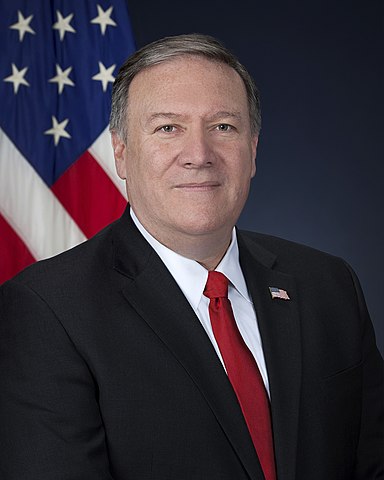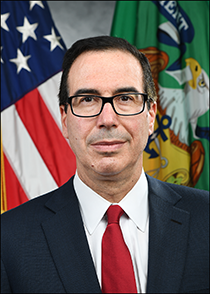On September 3, the United States sanctioned companies based in Iran, China and the United Arab Emirates (UAE) for deals involving Iranian oil. The State Department sanctioned five companies for the purchase, acquisition, sale, transport and marketing of Iranian petroleum. The Treasury also sanctioned six companies with ties to Triliance Petrochemical -- a Hong Kong-based company with branches in Iran, China, Germany and the UAE. The Treasury had sanctioned Triliance in January 2020 for transferring the equivalent of millions of dollars to the National Iranian Oil Company.
Related Material: U.S. Sanctions Iranian Oil Smuggling Network
Among the five companies sanctioned by the State Department were three Chinese shipping firms: Zhihang Ship Management CO Ltd., New Far International Logistics LLC and Sino Energy Shipping Ltd. The sanctions on Chinese shipping firms followed reports that Iran and China were exploring a 25-year economic and military partnership. Pompeo warned that the Trump administration would sanction Chinese firms that traded with Iran. “The world should know that should China choose to violate the sanctions that we have imposed against Iran, that we’ll hold everyone accountable,” he said in an interview on WMAL on August 31.
The other two companies sanctioned by the State Department were the Iran-based Abadan Refining Company and the UAE-based Chemtrans Petrochemicals trading LLC. The State Department also designated three individuals employed by New Far, Sino Energy and Abadan as principal executive officers.
The Treasury sanctioned three companies based in China, two based in the UAE and one based in Iran. The Trump administration claimed that the six companies helped Triliance hide its involvement in selling Iranian petroleum. Iran has disguised its oil transfers by renaming and reflagging ships, disabling ship transponders, conducting offshore ship-to-ship transfers of oil to foreign buyers.
Related Material: Iran's Tankers and Its Smuggling Tactics
The Trump administration has increasingly cracked down on Iranian oil shipping. On August 12, it seized 1.1. million barrels of petroleum sold to Venezuela – the largest seizure of Iranian fuel at the time. Treasury Secretary Mnuchin drew a direct link between profits from oil sales and the Revolutionary Guards – a U.S.-designated Foreign Terrorist Organization. “The Iranian regime uses revenue from petrochemical sales to continue its financing of terrorism and destabilizing foreign agenda,” said Treasury Secretary Steven Mnuchin
Secretary of State Mike Pompeo: Imposing Sanctions on Entities for Engaging in Transactions Related to Iran’s Petroleum and Petrochemical Industry
 Today, the Department of State imposed sanctions on five entities under section 3(a)(ii) of Executive Order (E.O.) 13846 for knowingly engaging in a significant transaction for the purchase, acquisition, sale, transport, or marketing of petroleum or petroleum products from Iran. The Department of State also imposed sanctions under section 5(a)(vii) of E.O. 13846 on three individuals who serve as principal executive officers of the sanctioned entities, or perform similar functions and with similar authorities as a principal executive officer.
Today, the Department of State imposed sanctions on five entities under section 3(a)(ii) of Executive Order (E.O.) 13846 for knowingly engaging in a significant transaction for the purchase, acquisition, sale, transport, or marketing of petroleum or petroleum products from Iran. The Department of State also imposed sanctions under section 5(a)(vii) of E.O. 13846 on three individuals who serve as principal executive officers of the sanctioned entities, or perform similar functions and with similar authorities as a principal executive officer.
Iran’s petroleum industry is a major source of revenue for the Iranian regime and funds its malign activities throughout the Middle East. Our actions today reaffirm the United States’ commitment to denying the Iranian regime the financial resources it needs to fuel terrorism and other destabilizing activities. We call on the regime yet again to stop undermining the Iranian people’s prosperity by exploiting Iran’s natural resources to sow chaos and destruction.
The entities sanctioned today are Iran-based Abadan Refining Company; China based Zhihang Ship Management CO Ltd., New Far International Logistics LLC and Sino Energy Shipping Ltd.; and United Arab Emirates (UAE) based Chemtrans Petrochemicals Trading LLC. The individuals sanctioned today are: Min Shi, employee of New Far; Zuoyou Lin, employee of Sino Energy; and Alireza Amin, employee of Abadan.
The Department of the Treasury also imposed sanctions on six entities for their support to Triliance Petrochemical Co. Ltd., an entity designated by Treasury and State in January 2020, and for related activities. These entities, based in Iran, UAE, and China, support Triliance’s continued involvement in the sale of Iranian petrochemical products, including efforts by Triliance to hide or otherwise obscure its involvement in sales contracts. These entities are: Iranian company Zagros Petrochemical Company; UAE-based Petrotech FZE (located in the Hamriya Free Zone, Sharjah, UAE) and Trio Energy DMCC; and Hong Kong-based Chinese entities Jingho Technology Co. Limited, Dynapex Energy Limited, and Dinrin Limited.
All entities targeted today continued to facilitate Iran’s export of petroleum, petroleum products, and petrochemicals contrary to U.S. sanctions. This is another reminder that the United States will not waver in its commitment to sanctions enforcement. Our sanctions will remain in place until Iran changes its behavior.
Department of Treasury: Treasury Sanctions Companies for Enabling the Shipment and Sale of Iranian Petrochemicals
 Today, the U.S. Department of the Treasury’s Office of Foreign Assets Control (OFAC) designated six entities for their support to Triliance Petrochemical Co. Ltd. (Triliance), an entity designated by Treasury in January 2020, and related activities. These entities, based in Iran, UAE, and China, support Triliance’s continued involvement in the sale of Iranian petrochemical products, including efforts by Triliance to hide or otherwise obscure its involvement in sales contracts. Iranian petrochemical sales remain a key revenue source for the Iranian regime, helping to finance its destabilizing support to corrupt regimes and terrorist groups throughout the Middle East and, more recently, Venezuela.
Today, the U.S. Department of the Treasury’s Office of Foreign Assets Control (OFAC) designated six entities for their support to Triliance Petrochemical Co. Ltd. (Triliance), an entity designated by Treasury in January 2020, and related activities. These entities, based in Iran, UAE, and China, support Triliance’s continued involvement in the sale of Iranian petrochemical products, including efforts by Triliance to hide or otherwise obscure its involvement in sales contracts. Iranian petrochemical sales remain a key revenue source for the Iranian regime, helping to finance its destabilizing support to corrupt regimes and terrorist groups throughout the Middle East and, more recently, Venezuela.
Additionally, the Department of State imposed today sanctions on five entities for knowingly engaging in a significant transaction for the purchase, acquisition, sale, transport, or marketing of petroleum or petroleum products from Iran. The Department of State also sanctioned three individuals who are principal executive officers of the sanctioned entities.
“The Iranian regime uses revenue from petrochemical sales to continue its financing of terrorism and destabilizing foreign agenda,” said Treasury Secretary Steven T. Mnuchin. “The Trump administration remains committed to targeting those contributing to Iran’s attempts to evade U.S. sanctions by facilitating the illicit sale of Iranian petroleum products around the world.”
These entities are being designated pursuant to section 1(a)(iii)(B) of Executive Order (E.O.) 13846.
BACKGROUND
In January 2020, OFAC sanctioned Triliance and three other petrochemical and petroleum companies that have collectively transferred the equivalent of hundreds of millions of dollars’ worth of exports from the National Iranian Oil Company (NIOC), which helps to finance Iran’s Islamic Revolutionary Guard Corps-Qods Force (IRGC-QF) and its terrorist proxies. Iran’s petroleum and petrochemical industries are major sources of revenue for the Iranian regime and fund its malign activities throughout the Middle East. Triliance has used various front companies to purchase, or facilitate the purchase and movement of, petrochemical products from Iran, and the entities targeted today help facilitate Iran’s petrochemical and petroleum exports in contravention of U.S. economic sanctions.
SANCTIONS EVASION
In March 2020, Iranian company Zagros Petrochemical Company (Zagros) agreed to sell Triliance hundreds of thousands of metric tons of Iranian petrochemicals during the year 2020. Triliance used Petrotech FZE (Petrotech), a UAE-based entity, as a purchaser of the petrochemical products it purchased from Zagros. Triliance used Petrotech to hide its involvement in petrochemical deals, including directing other companies to bill to Petrotech rather than Triliance. Petrotech has purchased tens of thousands of tons of petrochemicals from Zagros on behalf of Triliance.
Triliance uses numerous other companies to hide its involvement in petrochemical sales. Triliance used UAE-based Trio Energy DMCC (Trio Energy) to broker the sales of tens of thousands of metric tons of petroleum products, using Trio Energy accounts to settle fees owed by Triliance. Likewise, Triliance used Jingho Technology Co. Limited and Dynapex Energy Limited, both Chinese entities based in Hong Kong, to facilitate the shipment and resale of tens of thousands of metric tons of petrochemical products worth millions of dollars to an Asian country.
OFAC is also designating Dinrin Limited (Dinrin), a Chinese entity based in Hong Kong used by Zagros to hide its involvement in petrochemical sales to Triliance. Dinrin helped process millions of dollars in proceeds of Zagros’ sale of petroleum products to companies in Asia, including being the beneficiary of a multi-million dollar payment made for a shipment of a petroleum product that Zagros sold to Petrotech.
Zagros Petrochemical Company, Petrotech FZE, Jingho Technology Co. Limited, Dynapex Energy Limited, and Trio Energy DMCC are being designated, pursuant to section 1(a)(iii)(B) of E.O. 13846, for having materially assisted, sponsored, or provided financial, material, or technological support for, or goods or services to or in support of, Triliance. Dinrin Limited is being designated, pursuant to section 1(a)(iii)(B) of E.O. 13846, for having materially assisted, sponsored, or provided financial, material, or technological support for, or goods or services to or in support of, Zagros.
SANCTIONS IMPLICATIONS
All property and interests in property of these persons designated today subject to U.S. jurisdiction are blocked, and U.S persons are generally prohibited from engaging in transactions with them. In addition, foreign financial institutions that knowingly facilitate significant transactions for, or persons that provide material or certain other support to, the persons designated today risk exposure to sanctions that could sever their access to the U.S. financial system or block their property and interests in property under U.S. jurisdiction.
